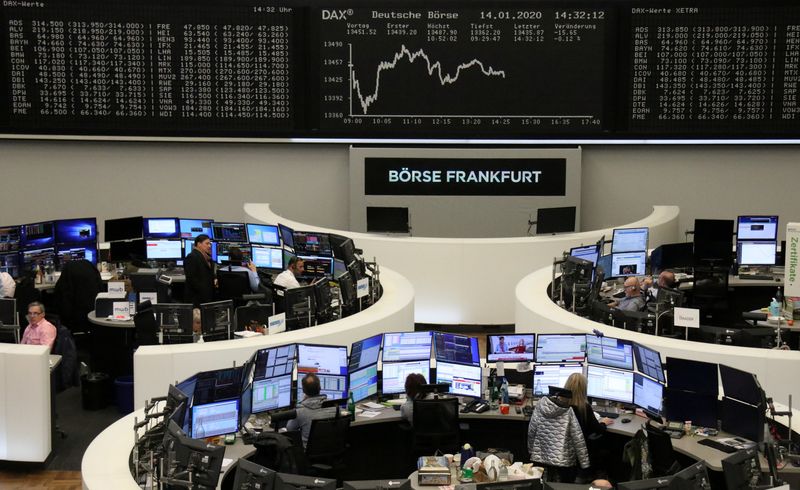By Ambar Warrick
(Reuters) - European shares were flat on Wednesday ahead of the signing of an initial trade deal between Washington and Beijing, as comments from the U.S. Treasury Secretary on China tariffs somewhat dimmed optimism.
The pan-European STOXX 600 index (STOXX) rose 0.01% by 0850 GMT.
Treasury Secretary Steven Mnuchin said tariffs on Chinese goods would remain until a second phase of a U.S.-China trade deal. His comments came hours before the signing of an agreement that seeks to ease prolonged trade tensions between the world's two largest economies.
The Phase 1 deal will lead to China buying more U.S. products, but does not tackle issues such as subsidies. However, the fine print on the deal is yet to be released.
"Markets aren't going to be moving in any reasonable way until we get things declared in terms of details on the deal," said David Madden, analyst at CMC Markets in London.
"We're getting some sort of deal, that's why we've been setting record highs. And given that how much positive news has been baked in, the deal would have to be phenomenal to trigger a next round of buying."
Healthcare (SXDP) was the best performing sector, led by a 3.5% rise in pharmaceuticals developer Swedish Orphan Biovitrum AB (ST:SOBIV). Madden said the sector was benefiting from defensive plays, given that there was a dearth of major market-driving news.
Dutch semiconductor supplier ASM International (AS:ASMI) was the best performer on the STOXX 600, hitting a record high after it reported a strong fourth-quarter order intake.
Automobile stocks (SXAP) were the worst performers in the euro zone, shedding about 0.8%.
German car parts maker Hella GMBH (DE:HLE) extended losses to a second session after it posted lower first-half earnings and warned that a strong market recovery was unlikely.
Stocks in Germany (GDAXI) fell about 0.1% after the EU bloc's biggest economy marked a GDP growth of 0.6% in 2019, the weakest expansion rate since 2013.

Talks between EU and U.S. trade representatives in Washington this week are also a point of focus, given the strained relations between the two over U.S. tariffs and aircraft subsidy disputes.